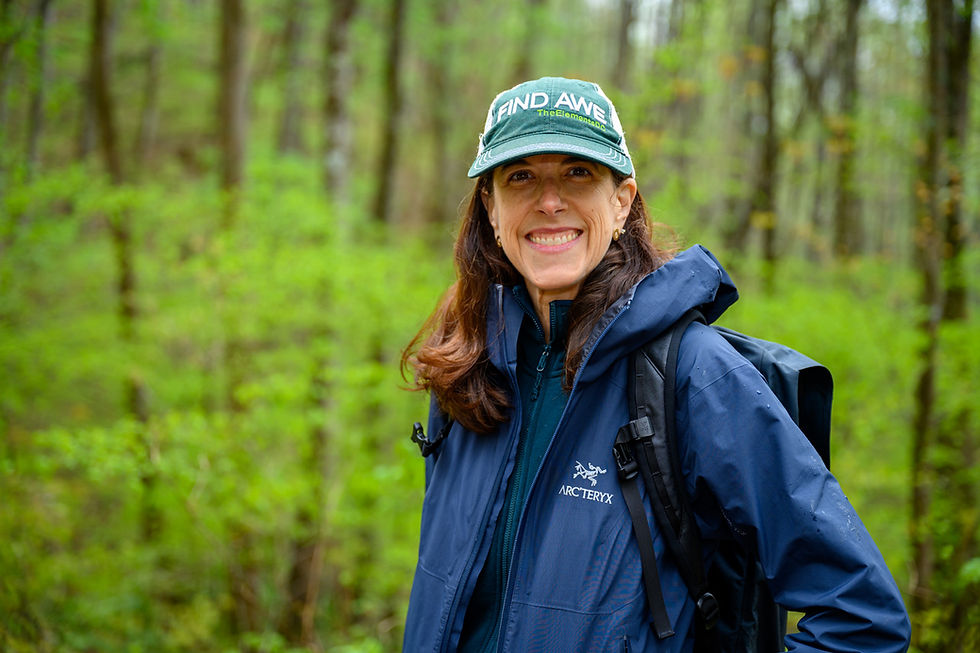Warriors Hike the Appalachian Trail as Ecotherapy for PTSD
- hikingresearch
- Nov 26, 2013
- 3 min read
The Appalachian National Scenic Trail is a 2,180 mile “green tunnel” extending from Georgia to Maine offering access to solitude and the healing power of nature for millions of people. In 2013, 1,130 hardy souls thru hiked the Appalachian Trail (AT) northbound. Some hiked the trail as a personal challenge, others for the thrill of adventure, and many set out on the quest for personal transformation. We all fight different battles and nature offers a balm that can heal many psychological and spiritual wounds.

2013 Warrior Hikers Photo courtesy of Warrior Hike
What better setting to walk off the stress of war than the AT? The November/December issue of Journeys Magazine, the official publication of the Appalachian Trail Conservancy (ATC) has an article on the Warrior Hike “Walk off the War” program, designed for combat veterans transitioning from their military service. The program was inspired by Earl Shaffer, the first person to thru hike the AT in 1948, who told a friend he was going to “walk off the war” to work out the sights, sounds, and losses of World War II. Recognizing the physical, mental, and spiritual benefits of long distance hiking, Warrior Hike partnered with the Appalachian Trail Conservancy, the Continental Divide Trail Coalition, and the Pacific Crest Trail Association to offer thru hiking experiences for returning combat veterans.

Viewing the beauty of autumn leaves in a forest can be used as a form of ecotherapy, providing healing to the mind, body, and spirit. Photo by Mark Ellison
The Warrior Hike program was spearheaded by Sean Gobin, a USMC Captain who thru hiked the AT in 2012 after returning from active duty in Afghanistan.The 13 participants selected to participate in the Warrior Hike program in 2013 received the equipment and supplies needed to complete a thru hike, support in towns along the AT from veterans and hiking organizations, and job placement assistance once they completed the hike. Veterans must apply to be part of the program, and applications are currently being accepted for 2014.

Since 2001 over 2.5 million veterans have returned home from the wars in Iraq and Afghanistan but many of them have never transitioned from their experiences. This is evident by the recent report from the Department of Veteran Affairs which states that over 20% of Iraq and Afghanistan veterans suffer from Post Traumatic Stress Disorder (PTSD). According to the National Institute of Mental Health, PTSD affects over 7 million American adults and “develops after a terrifying ordeal that involved physical harm or the threat of physical harm. The person who develops PTSD may have been the one who was harmed, the harm may have happened to a loved one, or the person may have witnessed a harmful event that happened to loved ones or strangers. PTSD was first brought to public attention in relation to war veterans, but it can result from a variety of traumatic incidents, such as mugging, rape, torture, being kidnapped or held captive, child abuse, car accidents, train wrecks, plane crashes, bombings, or natural disasters such as floods or earthquakes.” Symptoms of PTSD include having flashbacks, bad dreams, or frightening thoughts; feeling emotionally numb, guilty, depressed or worried; and being easily startled, on edge, or having angry outbursts.

An autumn snow on the Appalachian Trail near Mt. Rogers (Virginia) Photo by Mark Ellison
Post Traumatic Stress Disorder affects thousands of veterans returning from combat, but also many others who have experienced trauma in different settings. Lets face it, we live in a violent world. The therapeutic use of time in nature to help heal psychological and spiritual wounds can bring renewed hope to individuals, their families, and society as a whole. Time in nature can be powerfully transforming. Many of us know this intuitively, and research is beginning to substantiate this. Assessing the healing that combat veterans experience on the AT through a research project associated with the Warrior Hike program could help to attract additional funding to support it, and encourage healthcare providers to recommend hiking the Appalachian Trail as a treatment alternative for people who have experienced traumatic events. The Warrior Hike program is a wonderful example of how to use nature for healing (ecotherapy) and should be emulated to help as many as possible experience the restorative power that nature offers.








Comments